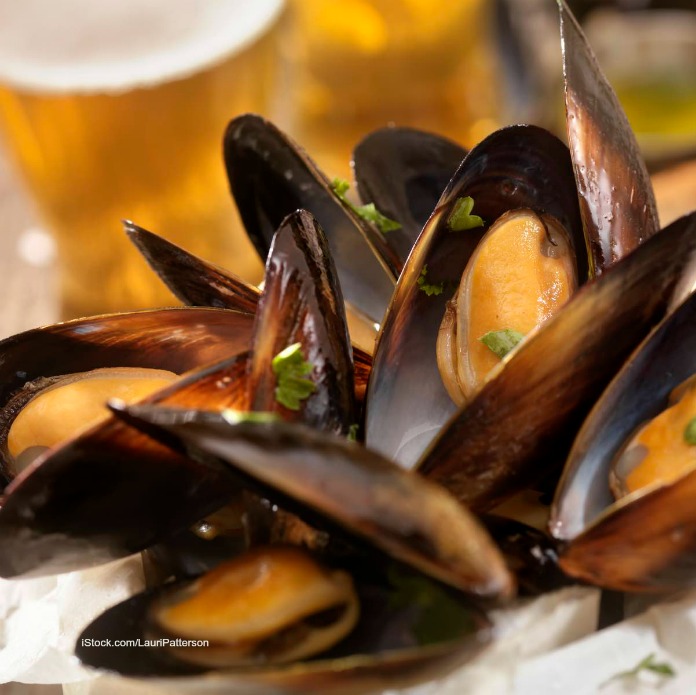The Massachusetts Department of Public Health and the Massachusetts Division of Marine Fisheries have announced that the shellfish beds in the town of Wellfleet on Cape Cod have been closed because of a large norovirus outbreak believed linked to the consumption of shellfish in that area. At least 75 suspect cases of norovirus were reported over a two day time period last week, mostly associated with eating raw shellfish at weddings and restaurants in the Outer Cape Cod area.

The shellfish growing areas that are affected are Wellfleet Harbor, Herring River, Wellfleet Inner Harbor, and Loagy Bay. You can see maps of the closed regions at the Mass.gov web site.
The symptoms of norovirus include vomiting, diarrhea, abdominal cramps, headache, fever, chills, and muscle aches. This illness usually runs its course in a day or two. Most people recover on their own without medical intervention, but some, especially the elderly, the young, and those with weakened immune systems, may suffer dehydration and need to be hospitalized.
Do not eat any shellfish from these affected areas if harvested or purchased on or after September 26, 2016. This includes oysters, hard shell clams (quahogs), soft shell clams (steamers), mussels, and razor clams. If you aren’t sure where the shellfish was harvested, ask your retailer.
To prevent the spread of norovirus, which is easily spread person to person, stay home from work or school if you are sick with a diarrheal or vomiting illness. Wash your hands well after using the bathroom or taking care of someone who is sick.
Clean contaminated surfaces after episodes of vomiting or diarrhea with a bleach-based household cleaner. Wash your hands well with soap and water afterwards.
Norovirus is the most common cause of gastroenteritis in people. It is transmitted by fecally contamianted food or water, aerosolization of the vomited virus, and through person to person contact. The virus is killed by heating and chlorine-bleached disinfectants.




